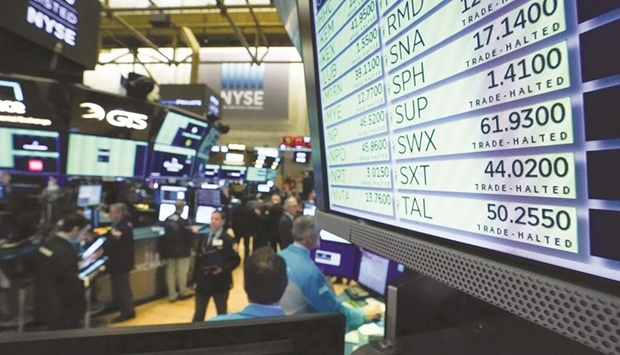The New York Stock Exchange is trying to lure Middle Eastern technology companies to list in the US, promising access to a broader investor base and deeper capital markets, even amid heightened volatility that’s scuppered listings worldwide.
“We have spoken to some companies in the region,” NYSE’s head of international capital markets Alexandre Ibrahim said, without naming the firms. “They could come here without a capital raise or conduct an initial public offering in the capital markets,” he said. “There are a lot of unicorns in the Middle East already.”
Regional tech startups include SoftBank Group Corp.-backed cloud kitchen startup Kitopi – a unicorn – as well as e-commerce firm Noon, used-car marketplace SellAnyCar.com and online baby shop Mumzworld.
The US has long been the destination of choice for tech startups globally, which flocked to its liquid markets and high valuations. But the Middle East is now in the midst of an IPO boom – one of the lone bright spots in an otherwise gloomy market for new share sales – as governments list state assets to fund a transition away from a fossil fuel economy.
New York still offers companies, particularly those in the tech sector, access to an investor base that understands them well, Ibrahim said. However, Gulf firms that have chosen to list in the US so far have fared poorly.
Dubai-based voice-chat startup Yalla Group Ltd two years ago became the first tech unicorn from the United Arab Emirates to go public in the US. Its market value initially rose to close to $6bn before tumbling to below $600mn, as the company came under the scrutiny of short sellers. Other Middle Eastern companies that opted for a different route to New York haven’t fared much better.
Spotify Technology SA rival Anghami went public on the Nasdaq in February after its merger with a special purpose acquisition company and has since slumped more than 50% amid a broader rout in the SPAC industry. Ride-sharing firm Swvl Holdings Corp, which followed Anghami a few months later after being acquired by a blank-check firm, is down more than 30%.
Ibrahim said the performance of the two companies shouldn’t deter others, given the gloomy market environment overall. “It doesn’t have to do with the product itself,” he said, referring to SPACs.

Traders work on the floor at the New York Stock Exchange in New York (file). The US has long been the destination of choice for tech startups globally, which flocked to its liquid markets and high valuations.
